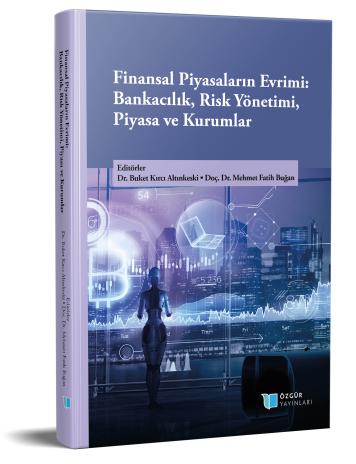
Petrol Endeksi ile S&P Körfez Şeriat Endeksi Arasındaki Korelasyonun Analizi
Şu kitabın bölümü:
Kırcı Altınkeski,
B.
&
Buğan,
M.
F.
(eds.)
2023.
Finansal Piyasaların Evrimi: Bankacılık, Risk Yönetimi, Piyasa ve Kurumlar.
Özet
Petrolün keşfi ve türevlerinin kullanım alanının yaygınlaşmasıyla petrol ihraç eden ülkelerin ekonomik güçlerinde belirgin değişiklikler meydana gelmiştir. Arap yarımadasında üretilen petrol dünya petrol piyasasının %50 sini oluşturmaktadır. Bu sebeple ortaya çıkan sermaye ülkelerin ekonomileri için önem teşkil etmektedir. Arap sermayesi zaman içerisinde finans devlerinin ilgisini çekmiştir. Finansal kurumlar bu sermayeyi kendilerine alabilmek için Müslüman Arapları ikna edebilecek farklı ürünler geliştirmiştir. Küresel büyüklüğe sahip ve Müslüman nüfusun yoğun olduğu ülkelerde bulunan şirketleri yatırım yapılabilir hale getirmek ve borsada işlem görecek şekilde sisteme dahil etmek için farklı Şeriat endeksleri türetilmiştir. Belirtilen tanımlamaya uyan, Şer’i onayı alınmış şirketlerden müteşekkil 50’den fazla endeks bulunmaktadır.
Çalışmanın amacı Körfez İş birliği Konseyi üye ülkelerin oluşturduğu Standard and Poor’s Körfez İşbirliği Konseyi (S&P KİK) Kompozit Şeriat Endeksi ile petrol fiyatlarının birbirleri ile olan etkileşimlerini incelemektir. Araştırmada 01.09.2009-31.12.2021 zaman dilimini kapsayan günlük veriler kullanılmıştır. Küresel ekonomik krizin etkilerinin azalmaya başlayıp piyasanın normalleşmeye başladığı dönem olduğundan başlangıç zamanı olarak 2009 seçilmiştir. Körfez ülkeleri için belirleyici faktör petrol olsa da seçilen endeksin diğer bileşenleri de S&P KİK Kompozit Şeriat Endeksi üzerinde etkilidir. Fakat petrol fiyatlarının uluslararası piyasalarda belirlenmesinden dolayı petrolün, diğer bileşenlerden bağımsız bir etkiye sahip olması beklenmektedir. S&P KİK Kompozit Şeriat Endeksi ile petrol fiyatları arasındaki ilişkinin analiz edilebilmesi için öncelikle durağanlık testleri yapılmıştır. Serilerin durağanlıklarının tespitinde Genişletilmiş Dickey-Fuller (ADF) birim kök testi, Zivot-Andrews Kırılmalı Birim Kök Testi uygulanmış ve seriler I(1) seviyesinde durağan hale gelmişlerdir. Ardından Hatemi-J Asimetrik Nedensellik Analizi ile değişkenler arasındaki pozitif ve negatif şokların nedenselliği araştırılmıştır. Hatemi-J Asimetrik Nedensellik Analizi sonucunda değişkenlerin birbirlerine herhangi bir etkisinin bulunmadığı sonucuna ulaşılmıştır.

